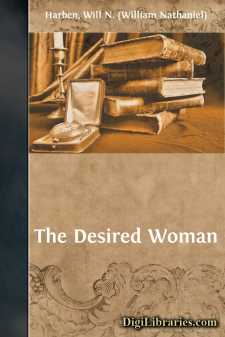Categories
- Antiques & Collectibles 13
- Architecture 36
- Art 48
- Bibles 22
- Biography & Autobiography 813
- Body, Mind & Spirit 142
- Business & Economics 28
- Children's Books 15
- Children's Fiction 12
- Computers 4
- Cooking 94
- Crafts & Hobbies 4
- Drama 346
- Education 46
- Family & Relationships 57
- Fiction 11829
- Games 19
- Gardening 17
- Health & Fitness 34
- History 1377
- House & Home 1
- Humor 147
- Juvenile Fiction 1873
- Juvenile Nonfiction 202
- Language Arts & Disciplines 88
- Law 16
- Literary Collections 686
- Literary Criticism 179
- Mathematics 13
- Medical 41
- Music 40
- Nature 179
- Non-Classifiable 1768
- Performing Arts 7
- Periodicals 1453
- Philosophy 64
- Photography 2
- Poetry 896
- Political Science 203
- Psychology 42
- Reference 154
- Religion 513
- Science 126
- Self-Help 84
- Social Science 81
- Sports & Recreation 34
- Study Aids 3
- Technology & Engineering 59
- Transportation 23
- Travel 463
- True Crime 29
Will N. (William Nathaniel) Harben
William Nathaniel Harben (1858–1919) was an American author known for his depictions of life in the Southern United States. He gained popularity with his works that focused on the experiences and challenges of rural Southern communities, often highlighting themes of social justice and morality. Among his notable works are "Abner Daniel," "Westerfelt," and "Pole Baker," which are celebrated for their authentic portrayal of Southern dialects and customs. Harben's writing contributed to the local color movement in American literature, capturing the essence of regional culture during the late 19th and early 20th centuries.
Author's Books:
Sort by:
CHAPTER I N a blaze of splendor the morning sun broke over the mountain, throwing its scraggy brown bowlders, spruce-pines, thorn-bushes, and tangled vines into impenetrable shadow. Massed at the base and along the rocky sides were mists as dense as clouds, through the filmy upper edges of which the yellow light shone as through a mighty prism, dancing on the dew-coated corn-blades, cotton-plants, and...
more...
CHAPTER I John Trott waked that morning at five o'clock. Whether it was due to the mere habit of a working-man or the blowing of the hoarse and mellow whistle at the great cotton-mills beyond the low, undulating hills half a mile away he did not know, but for several years the whistle had been his summons from a state of dead slumber to a day of toil. The morning was cloudy and dark, so he lighted...
more...
CHAPTER I Inside the bank that June morning the clerks and accountants on their high stools were bent over their ponderous ledgers, although it was several minutes before the opening hour. The gray-stone building was in Atlanta's most central part on a narrow street paved with asphalt which sloped down from one of the main thoroughfares to the section occupied by the old passenger depot, the...
more...
Chapter I. The balloon seemed scarcely to move, though it was slowly sinking toward the ocean of white clouds which hung between it and the earth. The two inmates of the car were insensible; their faces were bloodless, their cheeks sunken. They were both young and handsome. Harry Johnston, an American, was as dark and sallow as a Spaniard. Charles Thorndyke, an English gentleman, had yellow hair and...
more...





